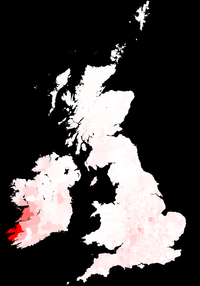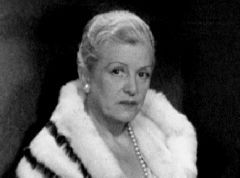Constance is a female given name that derives from Latin and means "constant." Variations of the name include Connie, Constancia, Constanze, and Constanza.

Turner is a common surname originating from Normandy, France, arriving in England after the Norman conquest with the earliest known records dated in the 12th century. It is the 28th-most common surname in the United Kingdom.
Chinn is a surname, originating both in England and among overseas Chinese communities.
Jen is a feminine given name, frequently a shortened form (hypocorism) of Jennifer, and occasionally a surname. It may refer to:
Jamie or spelling variations thereof is a unisex name. It has been used as an independent given name in English-speaking countries for several generations. It is also a diminutive form of James or, more rarely, other names.

The surname Cox is of English or Welsh origin, and may have originated independently in several places in Great Britain, with the variations arriving at a standard spelling only later. There are also two native Irish surnames which were anglicised into Cox.
Dickson or, as is common in England, Dixon, is a patronymic surname, traditionally Scottish and thought to have originated upon the birth of the son of Richard Keith, son of Hervey de Keith, Earl Marischal of Scotland, and Margaret, daughter of the 3rd Lord of Douglas.
May is a surname of Germanic (Saxon) and, independently, of Gaelic origin. There are many variants used in English-speaking countries, as well as several variants used in Germany. The Scottish May is a sept of Clan Donald. The surname "May" remains a common surname in the United States, England, Scotland, Ireland, Canada, Germany, Australia and New Zealand, as well as among Russians of German origin; possibly also persisting in areas of the Netherlands and France. People with the surname May include:

Griffin is a surname of primarily Irish origin. Griffin was the 75th most common surname on the island of Ireland in 1891. It was estimated in 2000 that Griffin is the 114th most common surname in the U.S., with a population in the order of two hundred thousand.
Scott is a surname of Scottish origin. It is first attributed to Uchtredus filius Scoti who is mentioned in the charter recording in the foundation of Holyrood Abbey and Selkirk in 1120 and the border Riding clans who settled Peebleshire in the 10th century and the Duke of Buccleuch.
Vivian is a given name, and less often a surname, derived from a Latin name of the Roman Empire period, masculine Vivianus and feminine Viviana, which survived into modern use because it is the name of two early Christian female martyrs as well as of a male saint and bishop.
Aaron is a primarily Jewish surname which is derived from the given name Aaron. There are several surname variants including Aarons, Aaronson, and Aron. Not all occurrences of the surname are Jewish.
Norman is both a surname and a given name. The surname has multiple origins including English, Irish, Scottish, German, Norwegian, Ashkenazi Jewish and Jewish American. The given name Norman is mostly of English origin, though in some cases it can be an Anglicised form of a Scottish Gaelic personal name.

Helen is a feminine given name derived from the Ancient Greek name Ἑλένη, Helenē whose etymology is unknown; a derivation of the latter from ἑλένη, a variant form of ἑλάνη, i.e. "torch", is considered "rather uncertain". Another possible derivation is from Greek Σελήνη Selene, meaning 'moon'. Helen of Troy is a character in Greek mythology. The name was widely used by early Christians due to Saint Helena, the mother of the emperor Constantine I, who according to legend found a piece of the cross on which Jesus Christ was crucified when she traveled to Jerusalem. Helen was very popular in the United States during the first half of the 20th century, when it was one of the top ten names for baby girls, but became less common following World War 2.
Alison, Allison, Alyson or Allyson is a unisex given name in English-speaking countries. It was originally a medieval French nickname for Alis, an old form of Alice derived with the suffix -on or -son sometimes used in the former French nicknames such as Jeanson or Pierson.
Kelly is an English-language unisex given name, derived from the Irish surname Kelly. As such, Kelly is historically a male-only name but has predominantly been used as a feminine given name since the 1960s, though with a significant minority usage as a masculine name, especially within Celtic families. During the peak of the name's popularity in the United States during the 1960s to 1970s, feminine usage was about four to five times as frequent as masculine usage.
Marlowe is both a surname and a given name. Notable people with the name include:
Curtis or Curtiss is a common English given name and surname of Anglo-Norman origin derived from the Old French curteis, which means "polite, courteous, or well-bred". It is a compound of curt- ″court″ and -eis ″-ish″. The spelling u to render [u] in Old French was mainly Anglo-Norman and Norman, when the spelling o [u] was the usual Parisian French one, Modern French ou [u]. -eis is the Old French suffix for -ois, Western French keeps -eis, simplified -is in English. The word court shares the same etymology but retains a Modern French spelling, after the orthography had changed.





